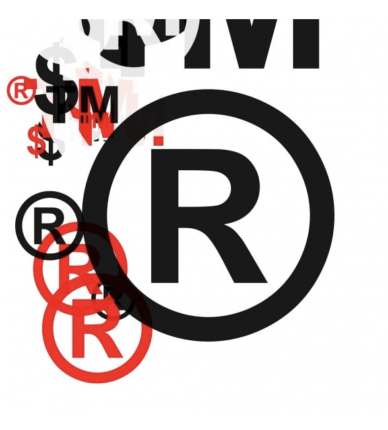When technology startups and entrepreneurs begin their trademark and brand protection strategy, understanding the type of trademark office actions that may issue on a U.S. trademark application is critical. So let’s explore the intricacies of trademark and branding process in the United States Patent and Trademark Office and the various types of Office Actions a trademark application may receive during the application process.
As you may know, during the application process, it’s possible to encounter an office action, which can be a complex and confusing issue to navigate. In a previous blog post (linked here), we discussed what office actions are and answered some FAQs related to them. In this post, we’ll dive deeper and provide an overview of all the types of OAs that the USPTO can issue on a trademark application, along with resources to help you gain a better understanding of the specific laws related to the office action. So, whether you’re a seasoned professional or new to the world of trademarks, keep reading to learn more!
In the world of trademarks, there are at least 12 types of Office Actions that can be issued, each with their own unique subparts. To help you navigate this complex process, we’ve compiled a list of all the different types of Office Actions you may encounter. If you’re looking for more information on how to avoid these issues or how to address them if they do arise, be sure to check out Chapter 9 of TTT Brand Protection Blueprint for Business, now available on Amazon. (Click here to visit the book page on Amazon and learn more).
Office Action Because Applicant Is Not the Owner of the Trademark
A trademark office action may be issued if an applicant is not the owner of a trademark. This issue can arise if the applicant is not the original registrant or if ownership has been transferred without proper documentation. Responding to this action may require providing evidence of ownership or transferring ownership to the applicant. For more information, see Trademark Manual of Examining Procedure (TEMP), Rule 1201.
Office Action Because Trademark Does Not “Function As A Trademark
A trademark office action may be issued if the trademark does not “function as a trademark.” This means that the proposed mark does not serve as an identifier of the source of goods or services, but rather describes a characteristic or quality of the product or service. Such a trademark may not be registered without additional evidence of distinctiveness. For more information, see Trademark Manual of Examining Procedure (TEMP), Rule 1202.
Trademark Office Action for Deceptive Trademarks
A trademark office action for deceptive trademarks occurs when a mark is considered misleading or false in regards to its goods or services. This type of office action can occur during the trademark registration process and may require additional evidence or arguments to prove that the mark is not deceptive. product. In plain English, a deceptive trademark is a trademark that falsely describes a product. TMEP §§1203.02–1203.02(g).
Trademark Office Action for False Suggestion of Connection with Famous Persons, Institutions, Beliefs, or National Symbols
A trademark office action for false suggestion of connection with famous persons, institutions, beliefs, or national symbols occurs when a mark is considered to falsely imply an endorsement or association with such entities. This type of office action can require additional evidence or arguments to prove that the mark is not misleading or likely to cause confusion.This happens when a trademark either disparages, or falsely suggests a connection with, another person, institution, belief, or national symbol or brings them into contempt or disrepute (TMEP §§1203.03–1203.03(c)(iii))).
USPTO Office Action Because Trademark Contains Government Insignia

A trademark office action may be issued because a mark contains government insignia, such as the US flag, a state seal, or other official symbols. This type of office action is issued to prevent unauthorized use of government insignia in commerce and may require the removal or modification of the offending element in the mark. This happens when a trademark includes the flag, coat of arms, or other insignia of the United States or any state, municipality, or foreign nation (See TMEP §§1204–1204.05)
USPTO Office Action Because Trademark Will Be Used For Unlawful Purpose
An office action may be issued because a mark is deemed to be intended for an unlawful purpose, such as promoting illegal activities or infringing on the rights of others. This type of office action is issued to prevent the registration of marks that violate public policy or are contrary to law. (See TMEP §§1206–1206.05).
USPTO Office Action Because Trademark Identifies A Famous Person or Celebrity
A trademark office action may be issued because a mark identifies a famous person or celebrity without their consent. This type of office action is issued to protect the rights of individuals to control the use of their name or likeness in commercial contexts and may require proof of consent or a valid fair use defense.
USPTO Office Action Due To Likelihood of Confusion
An office action may be issued due to the likelihood of confusion with an existing mark. This type of office action is issued to prevent the registration of marks that are similar to existing marks used in commerce and may require additional evidence or arguments to prove that the marks are not confusingly similar.
Trademark Office Action for Descriptiveness
An office action may be issued for descriptiveness if a mark is deemed too descriptive of the goods or services it represents. This type of office action is issued to prevent the registration of marks that are too generic or descriptive and may require the mark to be modified or combined with other distinctive elements to overcome the objection.
Office Action for Geographically Descriptiveness
A trademark office action may be issued for geographically descriptiveness if a mark is considered to be primarily geographically descriptive of the origin of the goods or services. This type of office action is issued to prevent the registration of marks that are too geographically descriptive and may require additional evidence or arguments to prove that the mark has acquired secondary meaning. See TMEP Rule 1210.01(a).
Office Action Because Trademark Is A Surname
An office action may be issued because a mark is considered to be primarily a surname or last name. This type of office action is issued to prevent the registration of marks that are too generic or lack distinctiveness and may require additional evidence or arguments to prove that the mark has acquired secondary meaning or significance beyond its surname meaning. See TMEP Rule 1211.
Office Action Because Trademark Is Merely A Character in A Work
An office action may be issued because a mark is considered to be merely a character in a work of fiction, such as a book, movie, or television show. This type of office action is issued to prevent the registration of marks that lack distinctiveness or are too similar to existing marks used in commerce. If a trademark contains a reference to a famous fictional character in a creative work, TMEP Rule 1202.10 should be reviewed in detail. Exceptions apply.
Trademark Attorney for Office Actions
Navigating the trademark and branding process can be a complex and confusing issue, especially when encountering an office action. Understanding the various types of office actions and how to address them is crucial for anyone seeking to protect their brand. The USPTO issues at least 12 types of office actions, each with their own unique subparts. Properly responding to an office action may require additional evidence or arguments, and it’s important to consult the relevant resources, such as the Trademark Manual of Examining Procedure (TEMP), to gain a better understanding of the specific laws related to the office action.
Entrepreneurs, technology startups, and small businesses should also be aware of the different types of office actions that may arise during the trademark application process. To navigate this complex area of law, it’s important to consult with an experienced intellectual property attorney who can provide guidance and help protect your valuable intellectual property assets. Understanding the intricacies of trademark and branding processes can be critical to the success of your business.


